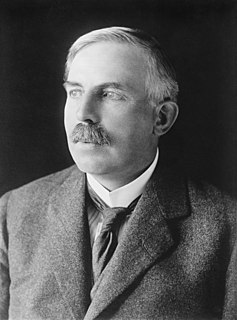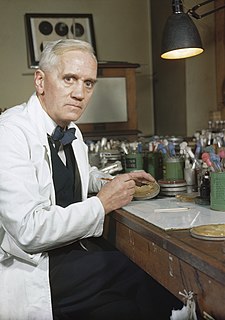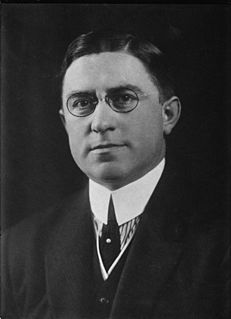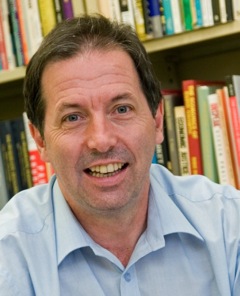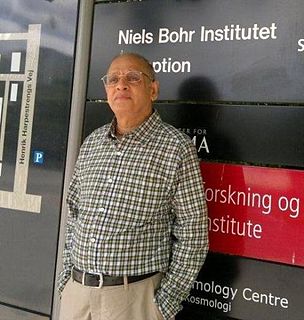Top 1173 Conclusion Quotes & Sayings - Page 19
Explore popular Conclusion quotes.
Last updated on November 23, 2024.
A Chinese paleontologist lectures around the world saying that recent fossil finds in his country are inconsistent with the Darwinian theory of evolution. His reason: The major animal groups appear abruptly in the rocks over a relatively short time, rather than evolving gradually from a common ancestor as Darwin's theory predicts. When this conclusion upsets American scientists, he wryly comments: "In China we can criticize Darwin but not the government. In America you can criticize the government but not Darwin."
The full consequences of a default or even the serious prospect of default by the United States are impossible to predict and awesome to contemplate. Denigration of the full faith and credit of the United States would have substantial effects on the domestic financial markets and on the value of the dollar in exchange markets. The Nation can ill afford to allow such a result. The risks, the cost, the disruptions, and the incalculable damage lead me to but one conclusion: the Senate must pass this legislation before the Congress adjourns.
Andrew said you were the best person he ever knew." "He reached that conclusion before he saw me raise three barbarian children to adulthood. I understand your mother has six." "Right." "And you're the oldest." "Yes." "That's too bad. Parents always make their worst mistakes with the oldest children. That's when parents know the least and care the most, so they're more likely to be wrong and also more likely to insist that they're right.
I had come to the conclusion a long time ago that there was no escape from the labyrinth of contradictions in which we live except by an entirely new road, unlike anything hitherto known or used by us. But where this new or forgotten road began I was unable to say. I already knew then as an undoubted fact that beyond the thin film of false reality there existed another reality from which, for some reason, something separated us. The 'miraculous' was a penetration into this unknown reality.
A large body of people, sufficient to make a nation, have come to the conclusion that they will have a government of a certain form. Who denies them the right? Standing with the principles of '76 behind us, who can deny them the right? ... I maintain on the principles of '76 that Abraham Lincoln has no right to a soldier in Fort Sumter. ... You can never make such a war popular. ... The North never will endorse such a war.
A major boom in real stock prices in the US after Black Tuesday brought them halfway back to 1929 levels by 1930. This was followed by a second crash, another boom from 1932 to 1937, and a third crash. Speculative bubbles do not end like a short story, novel, or play. There is no final denouement that brings all the strands of a narrative into an impressive final conclusion. In the real world, we never know when the story is over.
Suppose whether or not someone tells me a lie depends only on whether he wants to, but he is morally indifferent, he doesn't care much about the truth or about me, and his self interest, which he worships, tells him to lie, and so it comes about that given his psychology, it is a forgone conclusion that he will lie to me. I think in this case he is still blameworthy, and that implies, among other things, that he did something he ought not do.
I believe that any intelligent person who reads the evidence will come to the same conclusion about 2004 election results . But one will never be able to prove it to an absolute certainty because the votes were never counted in Ohio as the result of an illegal effort by public officials to derail the recount. Even if you do not believe that the election was stolen, there is no dispute that the Republicans made a deliberate, concerted effort to tilt the results in their favor.
Every now and then, I’d meet a guy and think that we were getting along great, and suddenly I’d stop hearing from him. Not only did he stop calling, but if I happened to bump into him sometime later he always acted like I had the plague. I didn’t understand it. I still don’t. And it bothered me. It hurt me. With time, it got harder and harder to keep blaming the guys, and I eventually came to the conclusion that there was something wrong with me. That maybe I was simply meant to live my life alone.
I've come to the conclusion that it's all about fear- fear that your kid won't come out on top, be a success. Forcing him into these brutal encounters will a) make a dame sure he is a success, and b) all you to see evidence of that success with the added bonus of a cheering crowd. This means that sports are supported with an almost desperate enthusiasm. The football team gets catered dinners before a fame. Honor Society is lucky if it gets a cupcake. Academic success-forget it. That requires too much imagination. There's no scoreboard.
Justice White's conclusion is perhaps correct, if one assumes that the task of a court of law is to plumb the intent of the particular Congress that enacted a particular provision. That methodology is not mine nor, I think, the one that courts have traditionally followed. It is our task, as I see it, not to enter the minds of the Members of Congress - who need have nothing in mind in order for their votes to be both lawful and effective - but rather to give fair and reasonable meaning to the text of the United States Code, adopted by various Congresses at various times.
From the results so far obtained it is difficult to avoid the conclusion that the long-range atoms arising from collision of alpha particles with nitrogen are not nitrogen atoms but probably atoms of hydrogen, or atoms of mass 2. If this be the case, we must conclude that the nitrogen atom is disintegrated under the intense forces developed in a close collision with a swift alpha particle, and that the hydrogen atom which is liberated formed a constituent part of the nitrogen nucleus.
It's my firm conclusion that human meaning comes from humans, not from a supernatural source. After we die, our hopes for an afterlife reside in the social networks that we influenced while we were alive. If we influence people in a positive way -- even if our social web is only as big as our nuclear family -- others will want to emulate us and pass on our ideas, manners, and lifestyle to future generations. This is more than enough motivation for me to do good things in my life and teach my children to do the same.
We were not born critical of existing society. There was a moment in our lives (or a month, or a year) when certain facts appeared before us, startled us, and then caused us to question beliefs that were strongly fixed in our consciousness-embedded there by years of family prejudices, orthodox schooling, imbibing of newspapers, radio, and television. This would seem to lead to a simple conclusion: that we all have an enormous responsibility to bring to the attention of others information they do not have, which has the potential of causing them to rethink long-held ideas.
By a man's finger-nails, by his coat-sleeve, by his boots, by his trouser-knees, by the callosities of his forefinger and thumb, by his expression, by his shirt-cuff — By each of these things a man's calling is plainly revealed. That all united should fail to enlighten the competent inquirer in any case is almost inconceivable. You know that a conjurer gets no credit when once he has explained his trick; and if I show you too much of my method of working, you will come to the conclusion that I am a very ordinary individual after all.
In my first publication I might have claimed that I had come to the conclusion, as a result of serious study of the literature and deep thought, that valuable antibacterial substances were made by moulds and that I set out to investigate the problem. That would have been untrue and I preferred to tell the truth that penicillin started as a chance observation. My only merit is that I did not neglect the observation and that I pursued the subject as a bacteriologist. My publication in 1929 was the starting-point of the work of others who developed penicillin especially in the chemical field.
Any Black person in amerika [sic], if they are being honest with themselves, have got to come to the conclusion that they don't know what it feels like to be free. We aren't free politically, economically, or socially. We have very little power over what happens in our lives. In fact, a Black person isn't free to walk down the street. Walk down the wrong street, in the wrong neighborhood at night, and you know what happens.
Artificial intelligence uses a complex set of rules - algorithms - to get to a conclusion. A computer has to calculate its way through all those rules, and that takes a lot of processing. So AI works best when a small computer is using it on a small problem - your car's anti-lock brakes are based on AI. Or you need to use a giant computer on a big problem - like IBM using a room-size machine to compete against humans on Jeopardy in 2011.
Jane Fonda, who divided her life into three acts, decided after her sixtieth birthday that she was now facing the final act, and came to the following conclusion: "I thought to myself, well if that's the case and if what I'm scared of isn't death, but getting to the end with regrets, then I've got to figure out what would be the things that I would regret when I got to the last act if I hadn't done them or achieved them by then. And they were: having an intimate relationship and having made a difference."
I listened very, very carefully to the world around me to pick up the signals of when trouble was coming. Not that I could stop it. But it made me observant. That was helpful when I became a lawyer, because I knew how to read people's signals. When a witness hesitated, my mind would race to the conclusion that he was trying to hide something. What was it? I'd dissect the story in my brain and nine times out of ten figure out a hole they were trying to avoid.
But as the work proceeded I was continually reminded of the fable about the elephant and the tortoise. Having constructed an elephant upon which the mathematical world could rest, I found the elephant tottering, and proceeded to construct a tortoise to keep the elephant from falling. But the tortoise was not more secure than the elephant, and after some twenty years of very arduous toil, I came to the conclusion that there was nothing more that I could do in the way of making mathematical knowledge indubitable.
It is very hard to enroll people in anything. And there is a very big difference between the words motivate and inspire. Motivation means we have an idea and we are going to carry through on that idea. We work hard at it, and we are disciplined. A highly motivated person takes an idea, goes out there, and won't let anybody interfere with them. Inspiration is exactly the opposite. If motivation is when you get hold of an idea and carry it through to its conclusion, inspiration is the reverse. An idea gets hold of you and carries you where you are intended to go.
If our planet has seen some eighty billion people it is difficult to suppose hat every individual has had his or her own repertory of gestures. Arithmetically, it is simply impossible. Without the slightest doubt, there are far fewer gestures in the world than there are individuals. That finding leads us to a shocking conclusion: a gesture is more individual than an individual. We could put it in the form of an aphorism: many people, few gestures.
I thought that conclusion that we leaped to right after the election, that has been disproven statistically so many times, I don't know why Republicans would advocate that advocating for comprehensive immigration reform is somehow a political solution for the Republicans losing a percentage of Hispanics. I probably have less appetite for this than either the Senate or colleagues in the House, certainly the Democrats and most likely members of the Republican Conference. They are still wrestling with trying to get their education up to a level where they can actually advocate for policy.
The Federal Reserve Bank of New York is eager to enter into close relationship with the Bank for International Settlements....The conclusion is impossible to escape that the State and Treasury Departments are willing to pool the banking system of Europe and America, setting up a world financial power independent of and above the Government of the United States....The United States under present conditions will be transformed from the most active of manufacturing nations into a consuming and importing nation with a balance of trade against it.
In conclusion, the submission of one's will is really the only uniquely personal thing we have to place on God's altar. The many other things we 'give,' brothers and sisters, are actually the things He has already given or loaned to us. However, when you and I finally submit ourselves, by letting our individual wills be swallowed up in God's will, then we are really giving something to Him! It is the only possession which is truly ours to give!
Let us examine our attitude toward peace itself. Too many of us think it is impossible. Too many think it unreal. But that is a dangerous, defeatist belief. It leads to the conclusion that war is inevitable, that mankind is doomed, that we are gripped by forces we cannot control. We need not accept that view. Our problems are manmade; therefore they can be solved by man. And man can be as big as be wants. No problem of human destiny is beyond human beings.
In terms of the game theory, we might say the universe is so constituted as to maximize play. The best games are not those in which all goes smoothly and steadily toward a certain conclusion, but those in which the outcome is always in doubt. Similarly, the geometry of life is designed to keep us at the point of maximum tension between certainty and uncertainty, order and chaos. Every important call is a close one. We survive and evolve by the skin of our teeth. We really wouldn't want it any other way.
There is no other course but the one we have chosen, except the course of humiliation and darkness, after which there will be no bright sign in the sky or brilliant light on earth? All this will make us more patient and steadfast, and better prepared for the battle which God blesses and which good men support. Then there will only be a glorious conclusion, where a brilliant sun will clear the dust of battle, and where the clouds of battles will be dispelled.
I engaged - started engaging in yoga as a physical practice, but very quickly found out there was something broader to it, and that it was actually helpful for my pain, and started to get into meditation, started to study the Upanishads and the Bhagavad Gita and a lot of the scriptures associated with yoga, the Yoga Sutras, and very quickly came to this conclusion that this had a huge impact on my ability to lead, but, more importantly, the ability to control my sympathetic nervous system, which had a direct tie to the pain in my arm.
The United States of America are more of a concept than a historically evolved geographical conclusion, compared to European countries. I find this extremely interesting. Europe seems objectively more progressive and more civilized at a time when the U.S. is entering a regressive, oppressive, totalitarian era. You've got racial issues, the endurance of Puritanism, other seriously anachronistic religious fanaticisms, and it's all linked to conservatism. Despite all the unresolved deep-seated problems, the U.S. is still a country where it's less important where you come from than what you do.
The term "rational" and its variants (rationality, rationalism) are used in a lot of contexts in economic debate, both positively and negatively, but nearly always sloppily or dishonestly. A specimen I've seen on more occasions than I can count is the line (usually presented with a sense of witty originality) "if you are opposed to economic rationalism, you must be in favor of economic irrationalism"... I've come to the conclusion that the word "rational" has no meaning that cannot better be conveyed by some alternative term and that the best advice is probably to avoid it altogether.
Lady of silences
Calm and distressed
Torn and most whole
Rose of memory
Rose of forgetfulness
Exhausted and life-giving
Worried reposeful
The single Rose
Is now the Garden
Where all loves end
Terminate torment
Of love unsatisfied
The greater torment
Of love satisfied
End of the endless
Journey to no end
Conclusion of all that
Is inconclusible
Speech without word and
Word of no speech
Grace to the Mother
For the Garden
Where all love ends.
Many years ago I was driven to the conclusion that the two major causes of most emotional problems among evangelical Christians are these: the failure to understand, receive, and live into God's unconditional grace and forgiveness; and the failure to give out that unconditional love, forgiveness, and grace to other peopleWe read, we hear, we believe a good theology of grace. But that's not the way we live. The good news of the Gospel of grace has not penetrated the level of our emotions.
It's so much worse to regret something you never did. It's often worth running through your fears to their logical conclusion to help disperse them. One footnote - if life has taught me anything it's to trust the shy people. Popularity means a lot of people like you a bit, you have broad appeal. But who wants broad appeal? Interesting people are always a bit niche. Remember what Steven Patrick Morrissey said: "It takes guts to be gentle and kind.".
I was very curious about the world even at a young age, and I don't know at what point I became aware that other cultures believed in different religions, and my question was, 'Well, why don't they get to go to heaven then?' And the answer was always, 'Well, everyone gets a chance - meaning at the word of God as it was described to me then. And that didn't sit well with me then. But in times of trouble or discord, it's a great comfort. And it wasn't till I left home that I really came to the conclusion that it didn't make sense to me for many other reasons.
The ordinary patient goes to his doctor because he is in pain or some other discomfort and wants to be comfortable again; he is not in pursuit of the ideal of health in any direct sense. The doctor on the other hand wants to discover the pathological condition and control it if he can. The two are thus to some degree at cross purposes from the first, and unless the affair is brought to an early and happy conclusion this diversion of aims is likely to become more and more serious as the case goes on.
I have come to the conclusion that human beings are born with an innate capacity to triumph over trauma. I believe not only that trauma is curable, but that the healing process can be a catalyst for profound awakening - a portal opening to emotional and genuine spiritual transformation. I have little doubt that as individuals, families, communities, and even nations, we have the capacity to learn how to heal and prevent much of the damage done by trauma. In so doing, we will significantly increase our ability to achieve both our individual and collective dreams.
Look, I don't know whether God exists. I don't know that. And I tell you one thing, I am not frightened of my beliefs. If there is a God who is threatening me with damnation because I don't believe in Him, so be it. I've lived my life in conscience, and I will suffer damnation willingly in conscience against a tyrannical God who would damn me because, on the basis of the intelligence He gave me, I have come to a conclusion doubting His existence, and I will continue to be a skeptic all of my life.
No one can write a best seller by trying to. He must write with complete sincerity; the clichés that make you laugh, the hackneyed characters, the well-worn situations, the commonplace story that excites your derision, seem neither hackneyed, well worn nor commonplace to him. ... The conclusion is obvious: you cannot write anything that will convince unless you are yourself convinced. The best seller sells because he writes with his heart's blood.
Financial markets are supposed to swing like a pendulum: They may fluctuate wildly in response to exogenous shocks, but eventually they are supposed to come to rest at an equilibrium point and that point is supposed to be the same irrespective of the interim fluctuations. Instead, as I told Congress, financial markets behaved more like a wrecking ball, swinging from country to country and knocking over the weaker ones. It is difficult to escape the conclusion that the international financial system itself constituted the main ingredient in the meltdown process.
When something terrible happens, a lifetime of small events and unremarkable decisions, of unresolved anger, and unexplored fears begins to play itself out in ways you least expect. You've been going along from one day to the next, not realizing that all those disparate words and gestures were adding up to something, a conclusion, you didn't anticipate. And later, when you begin to retrace your steps you see that you will need to reach back further than you could have imagined, beyond words and thoughts and even dreams, perhaps to make sense of what happened.
Sometimes animals may suffer more because of their more limited understanding. If, for instance, we are taking prisoners in wartime we can explain to them that although they must submit to capture, search, and confinement, they will not otherwise be harmed and will be set free at the conclusion of hostilities. If we capture wild animals, however, we cannot explain that we are not threatening their lives. A wild animal cannot distinguish an attempt to overpower and confine from an attempt to kill; the one causes as much terror as the other.
Is the divine presence a Republican? Or is He/She/It running an inter-galactic fossil fuel conglomerate?...whatever the explanation may be, the Paraclete appears to be as determined as any terrestrial corporate frontman to prevent a successful conclusion to the climate talks. How I know? Because every time anyone gets together to try to prevent global climate breakdown, He swaths the rich, densely habited parts of the world with snow and ice, while leaving obscurer places to cook.
The theory that gravitational attraction is inversely proportional to the square of the distance leads by remorseless logic to the conclusion that the path of a planet should be an ellipse .... It is this logical thinking that is the real meat of the physical sciences. The social scientist keeps the skin and throws away the meat.... His theorems no more follow from his postulates than the hunches of a horse player follow logically from the latest racing news. The result is guesswork clad in long flowing robes of gobbledygook.
I came to the conclusion that war was an unacceptable way of solving whatever problems there were in the world--that there would be problems of tyranny, of injustice, of nations crossing frontiers and that injustice and tyranny should not be tolerated and should be fought and resisted, but the one thing that must not be used to solve that problem is war. Because war is inevitably the indiscriminate killing of large numbers of people. And that fact overwhelms whatever moral cause is somewhere buried in the history of that war.
It is commonly said that if rational argument is so seldom the cause of conviction, philosophical apologists must largely be wasting their shot. The premise is true, but the conclusion does not follow. For though argument does not create conviction, the lack of it destroys belief. What seems to be proved may not be embraced; but what no one shows the ability to defend is quickly abandoned. Rational argument does not create belief, but it maintains a climate in which belief may flourish.
In [Aristotle's] formal logic, thought is organized in a manner very different from that of the Platonic dialogue. In this formal logic, thought is indifferent toward its objects. Whether they are mental or physical, whether they pertain to society or to nature, they become subject to the same general laws of organization, calculation, and conclusion - but they do so as fungible signs or symbols, in abstraction from their particular "substance." This general quality (quantitative quality) is the precondition of law and order - in logic as well as in society - the price of universal control.
After announcing that the 2000 season would be his last before retirement: Last winter I made the decision to coach for only one more season. I have been wrestling with the timing of announcing that decision. After seeing the outstanding attitude and work ethic of this team, I came to the conclusion that it's best to get the announcement out of the way now so we can focus on the season and avoid the repeated distractions that come from questions about my retirement.
After visiting several of America's most fashionable playgrounds, I have reached the conclusion that men who work hard enjoy life most. The men at such places can be divided into two classes, first, busy men of affairs ... and, second, rich loafers. I was impressed by the obvious enjoyment corporation heads and other important executives were deriving from their vacation activities.... The idle rich fellows, on the other hand, although indulging in exactly the same activities, palpably were bored.
Everyone’s childhood plays itself out. No wonder no one knows the other or can completely understand. By this I don’t know if I’m just giving up with this conclusion or resigning myself — or maybe for the first time connecting with reality. How do we know the pain or another’s earlier years, let alone all that he drags with him since along the way at best a lot of leeway is needed for the other — yet how much is unhealthy for one to bear. I think to love bravely is the best and accept — as much as one can bear.
To ask about the 'source' of rights or morals assumes an erreous conclusion. To ask about the source of morals is to assume that such a source exists. As if it existed outside of human constructed systems. The 'source' is the human ability to learn from experience and to entrench rights in our laws and in our consciousness. Our rights come from our long history of wrongs.
The first undeniable reality is that every living thing dies, and the second undeniable reality is that we suffer throughout our lives because we don't understand death. The truth derived from these two points is the importance of clarifying the matter of birth and death. The third undeniable reality is that all of the thoughts and feelings that arise in my head simply arise haphazardly, by chance. And the conclusion we can derive from that is not to hold on to all that comes up in our head. That is what we are doing when we sit zazen.
As I never saw my father or my mother, and never saw any likeness of either of them (for their days were long before the days of photographs), my first fancies regarding what they were like, were unreasonably derived from their tombstones. The shape of the letters on my father's, gave me an odd idea that he was a square, stout, dark man, with curly black hair. From the character and turn of the inscription, "Also Georgiana Wife of the Above", I drew a childish conclusion that my mother was freckled and sickly.
I heard, one of my producers told me this story where like the Hollywood studios brought all these high-end consultants in to try to figure out how to improve their process and make films more efficiently, and these consultants like studied the process for years and finally came up with this report they put together about how studios can improve the efficiency of their process, and the conclusion was "have the script ready by the time you're shooting.
I've had stuff of mine adapted by other people, so I've come to the conclusion that a movie is a different form from a novel and there is no such thing as a true adaptation. You have to adapt to this other thing and do it right. But that voice of the original should somehow still be there, and the original intent should still be there. So if the original writer saw the movie, the writer would say, "Well, that's not what I wrote, but that's what I meant." And if you can do that, I think you've done your job as a screenwriter.
TEF is predicated on logic, a simple wager that every human faces:
If a reasoning human being loves and values life, they will want to live as long as possible-the desire to be immortal. Nevertheless, it's impossible to know if they're going to be immortal once they die. To do nothing doesn't help the odds of attaining immortality-since it seems evident that everyone will die someday and possibly cease to exist. To try to do something scientifically constructive towards ensuring immortality beforehand is the most logical conclusion.
Scientific realism in classical (i.e. pre-quantum) physics has remained compatible with the naive realism of everyday thinking on the whole; whereas it has proven impossible to find any consistent way to visualize the world underlying quantum theory in terms of our pictures in the everyday world. The general conclusion is that in quantum theory naive realism, although necessary at the level of observations, fails at the microscopic level.
Trivers, pursuing his theory of the emotions to its logical conclusion, notes that in a world of walking lie detectors the best strategy is to believe your own lies. You can’t leak your hidden intentions if you don’t think they are your intentions. According to his theory of self-deception, the conscious mind sometimes hides the truth from itself the better to hide it from others. But the truth is useful, so it should be registered somewhere in the mind, walled off from the parts that interact with other people.











